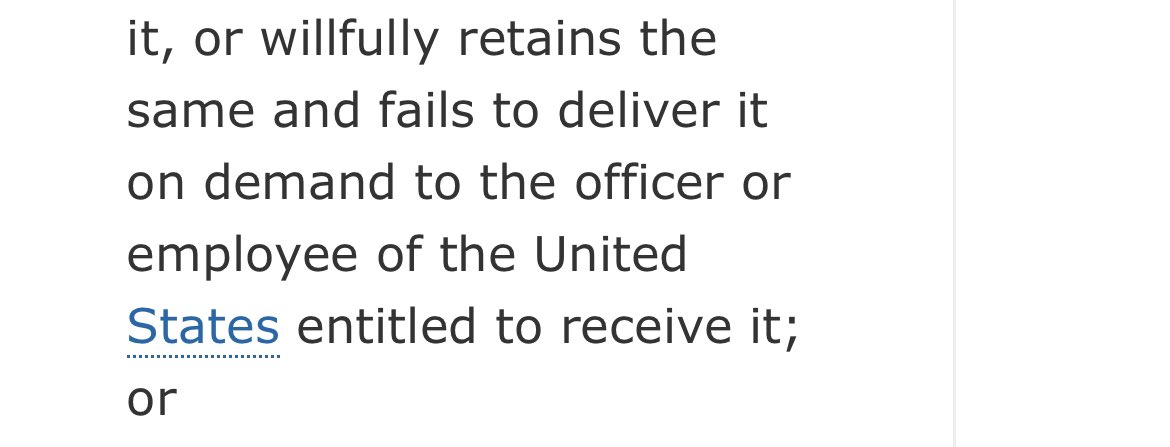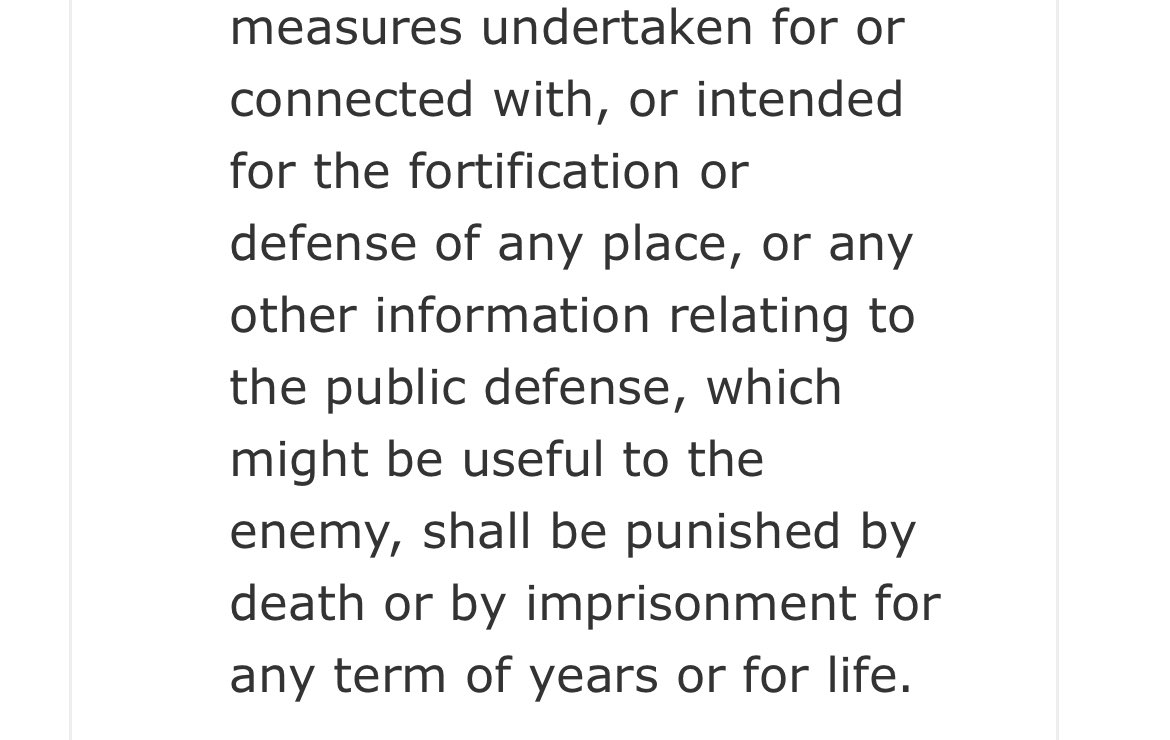
THREAD. Unpacking the Espionage Act, 18 U.S.C., Chapter 36. We are concerned here with Section 793 — Gathering, Transmitting, or Losing Defense Information. Pardon me while I pour myself a drink
2. Section 793 (and 794, which I briefly note below) of the Espionage Act concern “information related to the national defense.” This is info which the person who has them has reason to believe could a) be used to the injury of the U.S. or b) to the advantage of a foreign gov
3. Importantly, there is no requirement that such information officially be classified. Still, I’m waiting for confirmation from some Navy folks who work on nuclear submarines to clarify whether nuclear info is always TS/SCI (which by definition means it needs to be in a SCIF)
3. In any case, it appears that nuclear secrets cannot be unilaterally declassified…which makes sense, bc you can imagine that we might not want to leave secrets that could involve blowing up the entire planet in the hands of one individual
https://twitter.com/asharangappa_/status/1557909459644682241
5. (#3 above should have been #4) Let’s first turn to Section 793(e), which concerns individuals not authorized to possess the national defense info. I.e., Donald Trump. More detail on that from @petestrzok 👇🏽
https://twitter.com/petestrzok/status/1557427677258293248
6. But EVEN IF, somehow, Trump were to successfully argue that he *was* legally authorized to possess it, the Espionage Act has an identical subsection for that, too — 793(d)
7. Either way, it is a violation of the Espionage Act to willfully retain such information and fail to turn it over to an official who is lawfully entitled to receive it. Like NARA, when they asked nicely. Or the Counterintelligence and Export Control section of DOJ w subpoena 

8. That is, it appears, what Trump has done…AT A MINIMUM. If he affirmatively conveyed it to a foreign government (no evidence of that, just explaining), it would be a violation of Section 794…which is super serious and can carry the death penalty (see, e.g. Rosenbergs) 

9. Given the seriousness of all this, keep in mind that NARA and DOJ tried a) to obtain voluntary compliance and b) a subpoena. And yet, he hung on to these. Why??? A former POTUS would surely understand the disastrous potential of having these secrets unsecured
10. DOJ, for its part, has frankly shown a willingness to risk national security, at least temporarily, in order to show some deference and courtesy (and benefit if the doubt) to a former POTUS. I think it’s fair to say that if you or I tried this, we’d be arrested on Day 1
11. But the point here is it is NO WONDER that the FBI executed a warrant. The focus now should be not on the search, but why the 🤬 Trump hung on to these documents, and why his supporters think that is very legal and very cool /END
11. P.S. Navy nuclear sub officers: “Yes. TS/SCI and a codeword…[these are] Special Access Programs that are uber sensitive and you have to be read into and actively working to have access to.” So.
P.S. (got misthreaded) Navy nuclear sub officers: “Yes. TS/SCI and a codeword…[these are] Special Access Programs that are uber sensitive and you have to be read into and actively working to have access to.” So.
• • •
Missing some Tweet in this thread? You can try to
force a refresh



